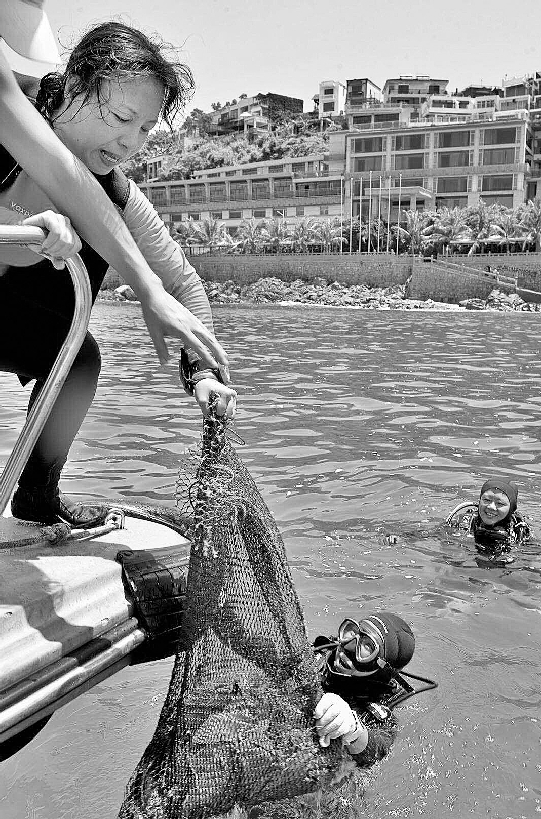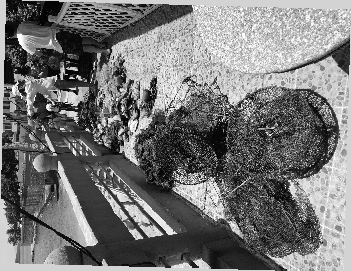

Zhang Qian zhqcindy@163.com FOR 90 minutes Saturday morning, Sun, an amateur female diver from Futian District, dove in and out of the sea area in Nao’an, Dapeng New Area, to pick trash from the ocean floor. “We mostly collect abandoned fishing nets, plastic bags, plastic water bottles and some other garbage,” Sun told the Shenzhen Daily after finishing the cleanup organized by a nonprofit environmental protection organization in Shenzhen called Dive for Love on Saturday. A total of 25 women voluntarily cleaned the 5,200 square meters of sea area in Nan’ao, picking around 97.5 kilograms of trash in 90 minutes. Another 12 volunteers collected 13.5 kilograms of garbage from the beach and helped count and recycle the garbage. Saturday marked PADI Women Divers Day, an annual activity initiated by the Professional Association of Diving Instructors (PADI), an international scuba diving training organization. “By organizing the cleanup, we hope more women will join us in loving diving as well as helping to protect the sea environment,” said Luo Mo, a core member of the NGO and instructor of the voluntary divers. Sun said she was satisfied with the results her team gained at Saturday’s cleanup. There were five people on her team. “With the resistance of the water, the garbage, especially the fishing nets, can actually be quite heavy, so the girls help each other pull the fishing nets from the water,” said Sun. The female divers also need to be able to carry the heavy diving gear on their back. When diving in the sea, Sun said that even with her three years of experience scuba diving, she was shocked to see how much garbage was left on the seafloor. “I tend to pick up as many plastic bags as I can because many ocean creatures eat plastic bags by mistake, which can kill them,” said Sun. The diver said she was grateful for the NGO, because as a trained scuba diver, she has a responsibility to protect sea ecology and promote knowledge about cleaning the ocean environment. To provide support for the female divers, four male divers also joined the cleanup, and Tommy from Hong Kong was one of them. “I was quite touched by how these volunteers worked throughout the morning, because to dive for one and half hours requires a lot of physical strength, not to mention they had to dive in and out to pick trash,” said Tommy, who is a scuba diving trainer with a diving club in Nan’ao. Tommy knows the underwater situation in Nan’ao well, so he has also taken responsibility for guiding the team to swim for 200 to 300 meters along the coastline. The NGO organizes voluntary cleanups every few months, said Luo. The most frequently seen garbage on the sea bottom is abandoned fishing nets and daily waste. “Some fishermen leave broken or stuck fishing nets in the sea, and some beachgoers litter food packages, cans and other stuff on the beach, and the water brings the trash into the sea,” said Luo. The instructor also said that some seafood restaurants on boats discharge their leftovers directly into the sea, so he suggested that residents avoid eating at boat seafood restaurants. | 
